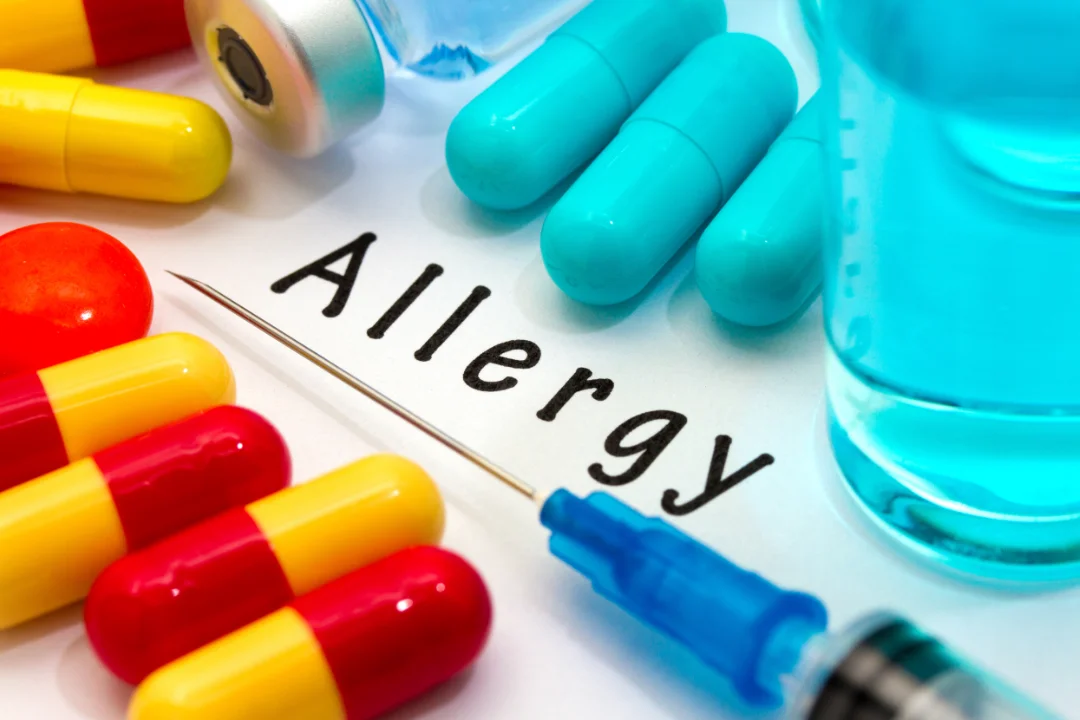Some people have allergies to medicines. Allergic responses are normally harmless. Drug allergy is not related to the pharmacodynamics of the drug. One drug can produce different types of responses, and different drugs produce different types of reactions as well. The organ most commonly affected is the skin, while others include the airways, blood vessels, blood, and the gastrointestinal tract. Allergic reactions occur in a very small population. The drug or drug metabolite acts as an antigen and produces antibodies against this antigen. The presence of antibodies to a drug does not necessarily indicate an allergy.
Drug allergy is mainly of two types: humoral and cell-mediated. These mainly involve lymphocytes, such as T lymphocytes and B lymphocytes.
The key factors for drug allergy are:
- Immune system sensitivity, which means that every individual is different. Someone may be more sensitive to certain things, and those who are sensitive to medicines may mistakenly produce allergic responses.
- Medication ingredients play a role in inducing a response. Because a medicine or drug is in a dosage form, it has active ingredients and many other ingredients known as excipients. These include substances like preservatives, dyes, stabilizers, and fillers. Individuals who are allergic to any of the ingredients mentioned above may experience a response.
- Previous exposure, which includes instances where a person has taken a medicine before without experiencing allergies, but upon subsequent exposure, they may produce responses because the immune system has developed an allergic response, even if it didn’t initially show any symptoms.
- Cross-reactivity occurs when a person is already allergic to a specific substance, and the drug contains structurally similar substances to what the patient is already allergic to. In such cases, the immune system produces allergic responses.
- Genetic factors play a role. Individuals with a family history of allergic reactions to specific drugs are more likely to experience allergic reactions to medications or other allergens.
The most common symptoms of allergies include skin responses such as skin rashes, itching, hives, swelling of the face or throat, difficulty breathing, and even anaphylaxis, a severe and potentially life-threatening allergic reaction.
People who have allergies should immediately report to the nearest hospital, as allergic reactions can sometimes be fatal. The triple response is most common, consisting of flush, flare, and wheal. Anyone with allergies should seek immediate medical attention and should avoid future intake of the allergen.


